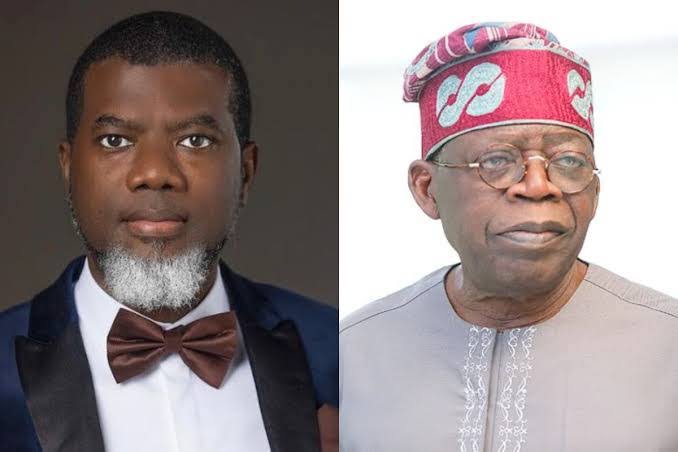A former presidential aide, Mr Reno Omokri, has said it is erroneous to blame President Bola Tinubu for business decisions made by the Nigerian National Petroleum Company Limited (NNPCL).
He said that despite the Federal Government’s ownership of the national oil company, its board of directors was responsible for its management and must be held accountable for all its decisions made in accordance with its obligation to run the business profitably.
“It betrays a lack of understanding of corporate governance and ignorance of how government operates when politicians and activists attack President Bola Tinubu, over the NNPCLs statements and actions,” Omokri said.
President Tinubu has come under attack over the recent petrol price hikes by the
NNPCL from N580 N617 to N850/N893 per litre, which triggered angry reactions from a cross-section of the public.
Many social commentators and policy analysts held the president responsible for the hike because they believed that the national oil company, wholly owned by the Federal Government, could not tinker with its products’ prices without the president’s assent.
However, Omokri contends that the company that decided for its business survival must be held accountable.
“The NNPCL, though state-owned, is a limited liability company that is not subject to the Appropriation Act or the Fiscal Responsibility Act in the way ministries, departments, and agencies are,” he said.
He further explained that while ministries, departments, and agencies were governmental organisations, the NNPCL was more accurately a quasi-governmental agency with self-financing and accounting like a limited liability entity.
Comparing NNPCL with the Nigerian Liquefied Natural Gas Limited, he said, “Both NLNG Limited and the NNPCL are answerable to their boards. They can spend money outside the budget because they are not a ministry, department, or agency of the government. They are like any other company, such as MTN, First Bank, or Indorama.
“The only difference between these companies and the NNPCL is their ownership.
Private individuals own them, and they are publicly traded. The Nigerian state owns the NNPCL.”
Omokri argued that the Federal Government had majority shares, which gave the President power to appoint the board and the group managing director, but did not rOb the company of its independence to make business decisions that would make it profitable.
“To an extent, the NNPCL is like the CBN, which, though the President appoints the governor, is still independent of the President and the gov-ernment,” he said, explaining,”Ownership and control of the NNPCL are separate.”
Noting that President Tinubu’s role as Minister of Petroleum Resources might have given the impression that he could interfere with the company’s management. He explained that this was erroneous because the ministry’s power extended to only policy formulation and regulation.
According to Omokri, “The relationship is very similar to that between the Ministry of Power and the Gencos and Discos. These generating companies (Gencos) are privately owned and have a minority stake held by the federal government of Nigeria. As such, the Ministry of Power has a regulatory role in the industry. That is the whole essence of deregulation.”
The former presidential aide said this arrangement was not peculiar to Nigeria and referenced other countries, including Britain.
Read Also: Financial institutions must be part of counter-terrorism efforts, says NSA
